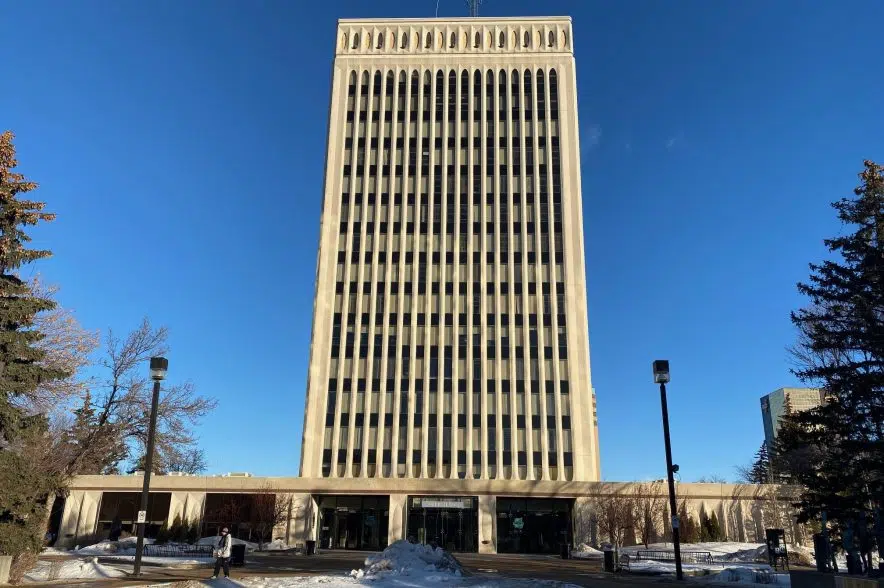If people in Regina take a close look at their water bills, they might have noticed an extra charge this year.
The “Water Affordability Surcharge” on their bills is part of a series of affordability programs that started in January.
They were approved by Regina city council in the fall.
“There are three programs and they are available to low-income households with seniors or low-income households with individuals living with a disability,” said Tanya Mills, the city’s acting director of assessment and property revenue services.
There’s the high-efficiency water retrofit program, the water utility rebate program and the low-income municipal property tax deferral program.
The charge that water utility customers will see on their bills every month is the charge related to the high-efficiency water retrofit program, which is set at one cent per day.
All customers who receive a city water utility bill can expect that charge.
“The high-efficiency water retrofit program will provide eligible households with a voucher that they can use to attain a water efficiency audit, or the installation of high-efficiency water fixtures such as low-flow toilets or faucets from a list of approved plumbing contractors,” Mills said.
Mills said that after applying, approved households would receive a voucher that they would be able to take directly to a plumber.
“There’s no upfront cost for the participant,” she said.
Water utility rebate program
“The water utility rebate program is a rebate directly on the utility bill for water and wastewater charges,” Mills said. “Eligible households would see a rebate of approximately $20 a month on their water bill.”
For those whose income is less than half of the low-income cutoff, Mills said they would get a rebate of about $40 a month.
Mills said the rebate program is funded through the 4.5 per cent utility rate increase that was approved at the end of 2022.
“We included specifically the half a per cent rate increase to fund the utility rebate program,” she said.
Low-income municipal property tax deferral program
Mills said this is an option for eligible applicants to defer a portion of their property taxes each year that they remain eligible in the program.
“They can defer their $600 or $1,200, or the incremental increase of their property tax, so the increase from the year before until a later date, such as when they sell their property, or their property transfers to another owner,” she said.
Between the high-efficiency retrofit program and the water utility rebate program, Mills said the average homeowner can expect to pay an extra $12 a year.











